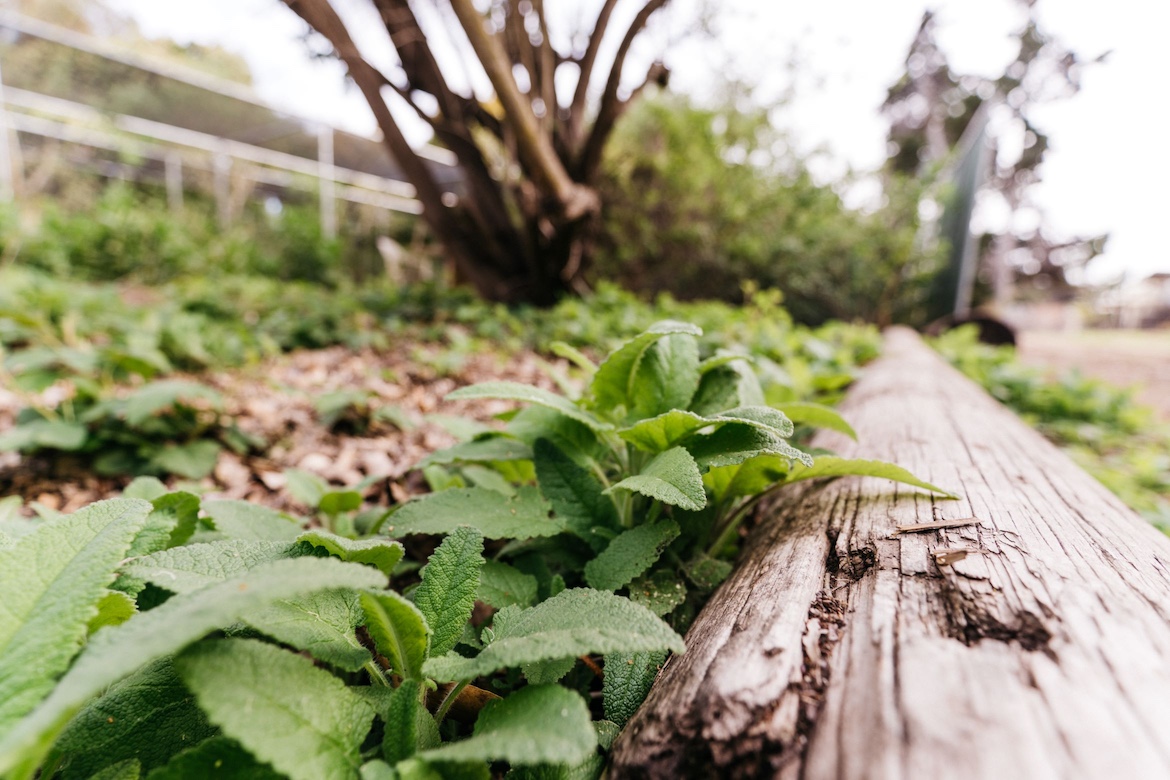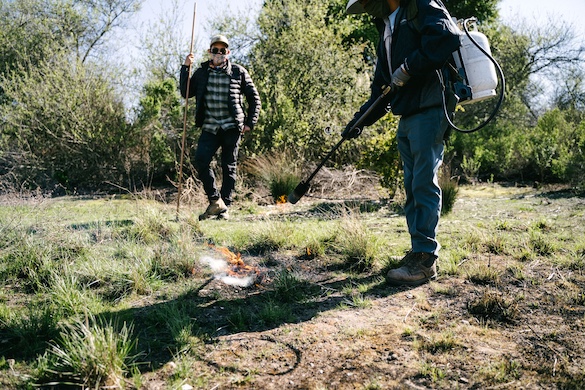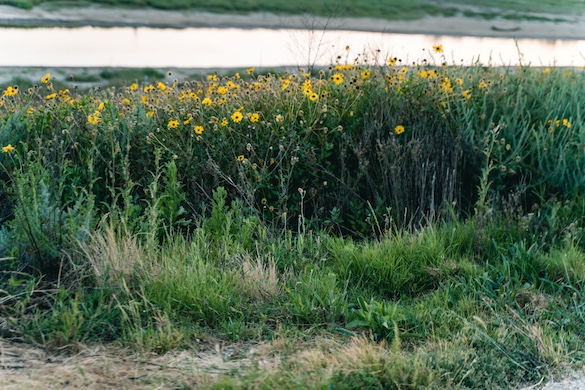UC Santa Barbara is committed to increasing biodiversity of the campus flora, maintaining it as a living collection, enhancing the utility of the campus as a classroom, protecting native flora, and raising awareness about sustainable practices and self-sustaining systems, while reducing dependency on fossil fuels, extracted minerals, pesticides, and potable water.

Zero Emissions Grounds Equipment
Campus grounds converted blowers, weed whips, hedge trimmers and lawn mowers to battery-powered or plug-in electric equipment in 2020. This switch not only reduces greenhouse gas emissions but helps mitigate workers’ respiratory health issues by reducing the inhalation of exhaust, toxins and dust.

Sustainable Pest Management
In 2019 the Grounds Teams and CCBER worked together to address concerns about the use of Glyphosate as a herbicide through an integrated pest management committee (IPM). Majority of campus landscaping is now maintained without Glyphosate by switching to more hand weeding or finding replacement herbicides. Training and safety has increased as a result of the initiative. The impact includes more tolerance of weeds on campus and increased labor costs.
Peer to Peer Sustainable Education
The Facilities Management Grounds Leads Meeting is a two-hour meeting that occurs every month. During this meeting, Lead staff members provide their peers with updates on projects, safety practices, sustainability initiatives and practices, and notes on how to better support the needs of the UCSB community. Each Lead staff member is trained in sustainability practices and resource conservation efforts. Employee educators are engaged in peer-to-peer sustainability outreach and education activities for approximately 30 hours each year. Information presented at the meeting is relayed to the other staff members in the Facilities Management Grounds Department.
90%
of the campus is irrigated with recycled water
90% of the campus is irrigated with recycled water, therefore augmenting our potable water use. And in 2019/2020 we converted two more segments of campus (Santa Rosa/College of Creative Studies and Santa Catalina/San Joaquin) to recycled water for irrigation.
~240 Acres
of open space
The Cheadle Center for Biodiversity & Ecological Restoration (CCBER). CCBER manages over 230 acres of open space on the UCSB campus in order to preserve and enhance native plant resources and biodiversity of the region.
